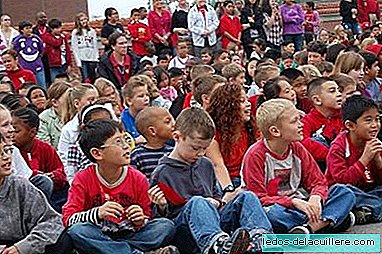
The low performance of the students is approached in different ways according to the educational system established in each specific country. As usual they try to offer more learning opportunities and this can translate into individualized attention or reinforcement classes.
It may also happen that students are classified according to their academic performance (have you heard of early segregation?); or that they are forced to repeat course to give them more time to master the subjects.
In the last PISA in Focus report (Are disadvantaged students more likely to repeat grades?), published by the OECD, and available at the National Institute for Educational Evaluation; it is indicated that the probability of repeating a course for a disadvantaged student is higher, even among students with the same academic performance.
Does it help repeat course?
In practice does not seem to have demonstrated clear benefits for students, nor for the school system as a whole - in fact Mariano Fernández Enguita warns that the measure is even expensive -, in addition to that it can further mark social inequality. In all OECD countries, 10% socio-economically disadvantaged students had repeated at least once since the beginning of Primary Education, compared to seven percent of the students that have won.
This can show that Low academic performance is not the only factor that predicts the repetition of the course, as there are students who are disadvantaged, because they do not have the same access to early support and opportunities to improve more effectively than favored students.
The reason may be in the lack of access to early supports and other opportunities such as external reinforcements (review classes, for example)
The fact that repeating is sometimes conceived as the only alternative for certain students, It is still a punishment, in the face of our conception that it serves as support for those who "fall behind."
It is true that students who are disadvantaged skip classes more frequently, or are unpunctual, but are they not denied the opportunity to progress when they must repeat reinforcing inequalities? As I commented above, the reflections are in the PISA in Focus report, where you will also find comparisons by countries.
I know that schools are limited by the system itself and the cuts, even in spite of the existence of resources (now I speak specifically about our country), but it is pointed out as a possible solution for socially disadvantaged students can receive additional teachings, and that they are allowed to catch up by means of adapted learning. If efforts are directed to where they are needed, support is given to those who need it most.












